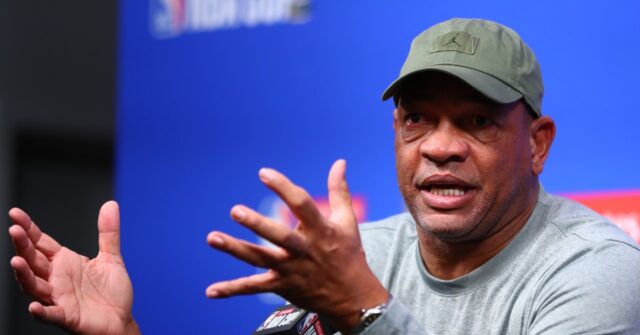Milwaukee Bucks head coach Doc Rivers has expressed his dismay over the ongoing issue of school shootings, particularly in light of a recent tragedy at Madison Christian School. He lamented that “kids can’t go to school safe,” and criticized the societal response to such incidents. His comments, made during a press conference, conveyed a sense of hopelessness and frustration, as he stated, “It’s just bad. We’re thinking about them.” Rivers’ remarks highlight a growing concern among parents, educators, and communities about the safety of children in schools, signaling a cry for action and change in policies regarding gun violence.
Rivers’ previous comments regarding gun violence also echo his current sentiments. After the Thousand Oaks shooting in 2018 that took the lives of 12 individuals, he stated that characterizing shootings as anything other than terrorism was misguided. He highlighted the emotional trauma experienced by parents, asserting that if it were their child, they would perceive it as a terrorist act. Rivers emphatically labeled guns as the true terrorists and called for a better understanding of this issue, underlining the persistent nature of such incidents in American society. However, critics note that Rivers’ narrative does not address the extensive security measures employed at sporting events, including NBA games, which often involve armed officers to ensure safety.
The ongoing debate about gun ownership and control is a critical issue in America, with Rivers seemingly failing to acknowledge the deep-rooted cultural significance of firearms in the country. Recent data indicates that gun sales have seen a significant rise, with background checks exceeding one million per month for over five years. This statistic illustrates that gun ownership remains an important aspect of American life, reflecting a complex interplay between rights, safety concerns, and cultural identity. As he calls for discussions surrounding gun violence, Rivers faces a landscape where millions of Americans view guns as fundamental to their rights.
The impact of Rivers’ statements also comes against the backdrop of declining viewership for the NBA. With a reported drop of 48 percent over the past 12 years and a staggering 28 percent decline just in the current year across major networks, the league seems to be wrestling with its connection to fans. Sports analyst Colin Cowherd linked that setback to the NBA’s perceived disconnection from the general public, suggesting that political commentary could alienate its viewership. As Rivers speaks out on gun issues, it raises questions about the intersection of sports, politics, and audience engagement, which could have broader implications for the league’s acceptance and popularity.
AWR Hawkins, a prominent commentator on Second Amendment rights and gun ownership, highlights the critical conversations surrounding the issue. Writing for Breitbart News, he reflects the sentiment that the narrative on gun control often ignores the significant segment of the population that values gun rights. Hawkins argues for the importance of acknowledging the responsibility of gun ownership and the cultural elements intertwined with it. His insights remind readers that while discussions about gun violence are necessary, it is equally essential to engage with the underlying values and beliefs of many Americans who view firearm ownership as a part of their freedom and identity.
As the dialogue around gun violence and safety continues, Rivers’ comments serve as a catalyst for both supporters and opponents of gun control measures. The stark reality of school shootings prompts emotional responses and calls for action, but the divergent perspectives on gun ownership complicate the discourse. Navigating this complex landscape requires an understanding of the multifaceted nature of the issue, including the fears of parents, the realities of gun ownership, and the evolving cultural context in which these discussions take place. Ultimately, finding common ground will be vital in addressing the safety of children while respecting the rights of individuals regarding firearms, and engaging in constructive conversations could pave the way towards meaningful solutions.

